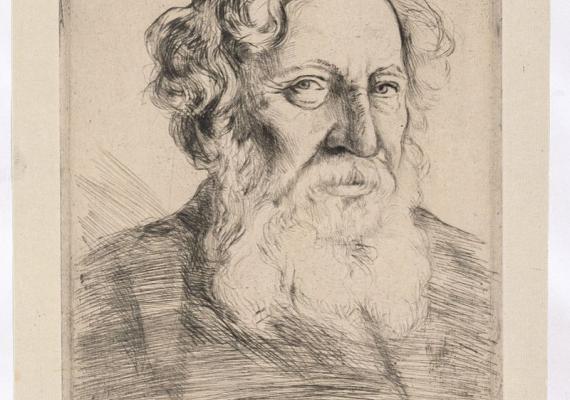The Fighting Faith of Solomon Schechter

Leah Goldberg once wrote that “it may be a characteristic of the modern to fluctuate between the naïve and the ironic, craving Eden in a lost world all the while revealing the problems inherent in simple belief.” Such a tangled set of views characterized Solomon Schechter, the ultimate “modern,” whose life the Katz Center and JQR remember in this centennial year of his passing. Schechter had lost the simple faith of his Romanian father, yet he fervently believed that scholarship could bridge the gap between tradition and modernity by creating the modern, committed Jew. He recognized the difference between religion and culture while serving a population that was more interested in a culture of tradition than in a religion of tradition. JQR played a role in this intellectual and communal project, mediating Jewish texts, ideas, and history for English-reading Jews as they sought somehow to bring at least fragments of Jewishness with them as they entered modern times and sensibilities.
At different times, both Moshe Idel and I reflected, at least in miniature, on Schechter’s life and works in the pages of JQR—in both cases the focus was on the transition—of Schechter from England to America—and the reflection engendered by that change. A decade ago I noted that, in a letter to his Cambridge successor Israel Abrahams, Schechter reinforced the adage that objectivity need not be neutral. In the sharply worded letter that I quote in “The Importance of Being Frank: Solomon Schechter's Departure from Cambridge” (JQR 94.1) it is clear that Schechter viewed the science of Judaism as intrinsically true but also as a vehicle for Jews to represent themselves and their civilization to Jews and non-Jews alike. The creation of a spiritual nationalism in the fragmented present required a truthful reconstruction of the people’s past.
To mark the 100th anniversary of Schechter’s bringing the Jewish Quarterly Review to Philadelphia, in an essay titled “On Solomon Schechter in the Pages of JQR” (JQR 100.4) Moshe Idel plumbed the archive for a telling essay to gloss. His resultant piece on Schechter’s appraisal of mysticism reveals how the man worked in different aspects of Jewish science, how he managed to combine usually disparate and disconnected endeavors like history, theology, and philology to produce deceptively simple renderings of Judaism and its cultural expressions. This shows through Schechter’s portrait of Nahmanides, the great Spanish medieval scholar who combined philosophy, mysticism, and profound feeling in a state of “happy inconsistency—an existential predicament with which Schechter likely personally identified.
Schechter the modern emerges from these two offerings, and from the Katz Center’s recent conference devoted to Schechter’s years in America. A person of many interests and facets, he accepted his ironic lot, recognizing that the questions worth asking, the facts worth knowing, took us in not one but many directions. In Schechter’s view, one needed to live with the gaps between what one knew and what one believed. For someone who spent so much of his life fighting for Judaism, fighting with ideas and thinkers he felt threatened Judaism, he remains in some ways quite modest, even humble, about what he claimed to know, or to believe.